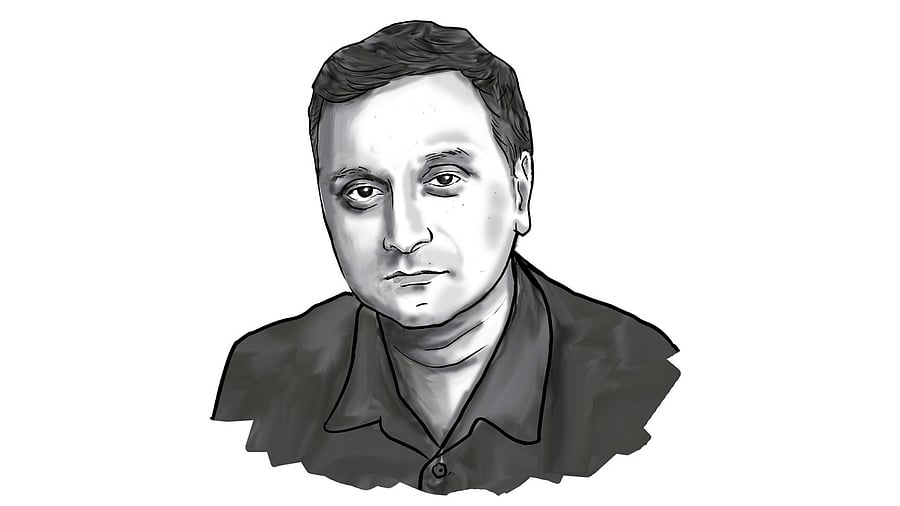
Chandan Gowda The ISEC Professor looks for new ways of looking  @Chandan_Gowda73
The passing away of Pope Francis on April 21 was also the ending of a great moral voice. The first person from outside Europe to head the Catholic Church since the 8th century, Jorge Bergoglio, an Argentinian by birth, chose Francis as his papal name after the Italian saint, Saint Francis of Assisi (1181-1226), who shared a deep concern for the poor.
During his twelve-year long papal tenure, Pope Francis brought a distinct moral tenor to the Catholic Church. He addressed with great moral urgency some of the major crises seen in our times: the suffering of the refugees, the tragedy of the Covid pandemic, the tragic plight of the Palestinians, the climate crisis, and indeed, the violence of the capitalist market that is, in his words, “unconcerned about the deeper meaning of our lives.”
The efforts of Pope Francis to radicalise Christian teachings share roots of course in the rich tradition of left-activism of the church in Latin America.
Available online in elegant translation, the four encyclicals – the Pope’s lengthy reflections on moral and social issues that form the basis of church discussions and scholarship – that he issued show him taking pains to clarify some of the foundational Church doctrines alongside making them speak to contemporary realities. Issued in 2015, the second among them, Laudato si (Praise be to you – On Care For Our Common Home), will count among the most profound exhortations to stop the human ravaging of the earth.
Although he did not depart from the official Catholic views disallowing abortion and same-sex marriage, Pope Francis pushed for a more compassionate understanding of these issues. He, for instance, recognised the civil unions of same-sex couples and blessed them. While he stayed with the orthodox position that women could not be ordained as priests, he appointed more women to leadership positions in the Vatican than any of his predecessors. In appointing bishops and cardinals, he chose those who were empathetic towards the poor and also ensured a greater ethnic and geographical diversity within the Catholic Church.
Pope Francis was indeed among the few world moral figures in our midst. In late October, when the brutal Israeli retaliation to the October 7 Hamas attacks kept escalating with none of the Western powers asking for peace, I had written to him at his official Twitter handle: “Dear Fr. Francis, It will help if you and other religious leaders visit Gaza and/or Israel soon. Today, if possible.”
In a shocking, cruel act, the day after Pope Francis’ death, five armed terrorists killed 26 innocent people, mostly tourists and all Indians except for one Nepali – in Pahalgam, Kashmir. As the photos of the dead victims and grieving survivors surfaced, anguish and shock over the violent deaths grew across the country. Kashmiris came out in large numbers to condemn the attack and mourn the victims. Leading English and Urdu newspapers of Kashmir ran blank, black front pages the day after the attacks to protest the inhuman event.
Even as the government sought the motives behind this incident with Pakistan appearing to be complicit, digital news and social media predictably peddled right-wing accusations about all Muslims being terrorists and anti-Hindu. Amid this malicious atmosphere, the survivors’ open gratitude to the local Kashmiri Muslims for taking them to safety at risk to their own lives and their refusal to let the tragedy be communalised stand out as testimonies of moral sanity and courage that make up the soul of India.
Amid the national grief over the terrorist killings, the NDA government announced that caste would be surveyed in the forthcoming national census. This major policy decision was surprising since this government had felt it to be a divisive exercise when the Opposition parties were pushing for it. In any case, gathering data on castes was long overdue given India’s existing affirmative action commitments to the OBCs whose effective implementation needs fresh data on a periodic basis.
The counting of castes helps get a better sense of contemporary India too: How are occupation-based caste communities transitioning in the present? Which occupations are disappearing? Which communities are migrating within and across states? What is the fate of caste-based language-dialects? Also: the new numerical awareness of the castes and sub-castes among the Hindus, Muslims and other religions will likely see new forms of community mobilisation that will potentially impact political alliances, election outcomes, and the scope of marriage alliances, among many, many key areas.